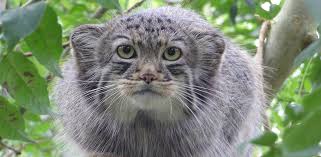All you need to know about Small Big Cats
Small big cats is a term used to refer to wild cats that are relatively small in size compared to other big cats such as lions, tigers, and leopards, but are still considered to be part of the big cat family Felidae.
Some examples of small big cats include:

Cheetah: The cheetah is the fastest land animal and is known for its distinctive spotted coat. It is considered a small big cat as it is smaller in size compared to other big cats and has a leaner body.
Jaguar: The jaguar is the largest cat in the Americas and is known for its muscular body and distinctive black spots. While it is not as large as lions and tigers, it is still considered a big cat.
Leopard: The leopard is a highly adaptable cat and is found in a wide range of habitats in Africa and Asia. It is smaller in size compared to lions and tigers, but is still considered a big cat.
Snow Leopard: The snow leopard is a highly endangered cat that is found in the high-altitude regions of Central Asia. It is a relatively small big cat and is well adapted to living in the harsh mountain environment.
Cougar (Mountain Lion): The cougar is the largest cat in North America and is found from Canada to South America. It is a powerful and agile predator that is considered a small big cat due to its size.
While these cats may be smaller in size compared to other big cats, they are still powerful predators and are adapted to hunting a wide range of prey in their respective environments.
Read Also: Comprehensive Guide on How to Grow Lettuce
Description and Personality of Small Big Cats
Small big cats, such as cheetahs, jaguars, leopards, snow leopards, and cougars, have unique physical and behavioral characteristics that make them distinct from other big cats.
Cheetah: Cheetahs are known for their distinctive spotted coats, long legs, and lean body. They are the fastest land animal, capable of reaching speeds of up to 70 miles per hour. Cheetahs are solitary animals, except for when mating or raising cubs, and are generally shy and non-aggressive.
Jaguar: Jaguars are known for their muscular build and distinctive black spots. They are excellent swimmers and are often found near water. Jaguars are solitary animals and are known for their aggressive hunting behavior.
Leopard: Leopards have a sleek, muscular build and are highly adaptable, able to survive in a wide range of habitats. They are known for their distinctive spots and are skilled climbers. Leopards are generally solitary and are known for their stealthy hunting behavior.
Snow Leopard: Snow leopards have a stocky build and are adapted to living in harsh, mountainous environments. They have thick fur to protect them from the cold and are skilled climbers. Snow leopards are solitary animals and are known for their elusive nature.
Cougar (Mountain Lion): Cougars have a muscular build and are highly adaptable, able to survive in a wide range of habitats. They are powerful and agile predators and are known for their stealthy hunting behavior. Cougars are solitary animals and are generally non-aggressive towards humans.
In terms of personality, small big cats exhibit a wide range of behaviors and personalities. While they are all highly skilled predators, they also have distinct temperaments and behaviors. Some are shy and elusive, while others are aggressive and territorial. Overall, small big cats are highly adapted to their respective environments and are awe-inspiring predators that command respect and admiration.
Health and Lifespan

The health and lifespan of small big cats vary depending on factors such as their environment, diet, genetics, and other factors. Here’s some general information about the health and lifespan of some small big cats:
Cheetah: In the wild, cheetahs have an average lifespan of 8-10 years, but in captivity, they can live up to 17 years. Cheetahs are susceptible to a range of health issues, including dental problems, respiratory infections, and reproductive issues.
Jaguar: Jaguars in the wild have an average lifespan of 11-12 years, but can live up to 20 years in captivity. They are generally healthy animals, but can be susceptible to diseases such as feline immunodeficiency virus (FIV).
Leopard: In the wild, leopards have an average lifespan of 10-12 years, but can live up to 23 years in captivity. Leopards can be susceptible to a range of health issues, including dental problems, parasites, and infectious diseases.
Snow Leopard: In the wild, snow leopards have an average lifespan of 10-12 years, but can live up to 20 years in captivity. They are susceptible to a range of health issues, including dental problems, respiratory infections, and parasitic infections.
Cougar (Mountain Lion): Cougars in the wild have an average lifespan of 8-13 years, but can live up to 21 years in captivity. They can be susceptible to a range of health issues, including dental problems, infectious diseases, and parasites.
Overall, small big cats face a range of threats to their health and well-being, including habitat loss, poaching, and disease. Conservation efforts are essential to protect these animals and ensure their survival in the wild. Zoos and other facilities play an important role in studying and caring for small big cats, as well as educating the public about their importance and role in the ecosystem.
Read Also: Achi Seed (Brachystegia Eurycoma): All You Need to Know About
Nutrition and Feeding
The nutrition and feeding of small big cats, such as bobcats, lynx, and ocelots, can vary depending on the species, age, and health status of the animal.
In general, small big cats are obligate carnivores, which means that their diet must consist of primarily animal-based protein to meet their nutritional requirements.
Here are some key points to consider when feeding small big cats:
Meat: Small big cats require high-quality, lean meat as the primary source of their diet. Meat from a variety of animals, such as beef, chicken, and rabbit, can be offered. In the wild, small big cats may consume whole prey, including rodents, birds, and fish.
Bone: Small big cats require bones in their diet to help maintain healthy teeth and bones. Raw meaty bones, such as chicken necks, wings, and backs, can be offered.
Organ meat: Small big cats require organ meat, such as liver and heart, in their diet to meet their nutritional needs.
Supplements: Depending on the diet being fed, supplements may be necessary to ensure that the small big cat is receiving all the necessary vitamins and minerals. It is important to consult with a veterinarian to determine the appropriate supplements.
Feeding frequency: Small big cats should be fed small meals frequently throughout the day to mimic their natural feeding behavior.
Water: Fresh water should be available at all times. It is important to note that the diet and feeding requirements of small big cats can vary based on their individual needs.
Consultation with a veterinarian who has experience working with these animals is recommended to ensure their nutritional requirements are being met.
Read Also: 40 Home Improvement Ideas for Those On A Budget









